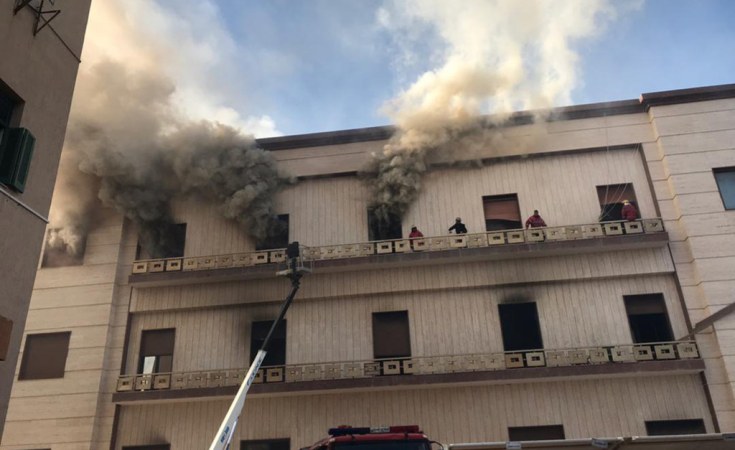Cairo — Fighting between rival militias in the Libyan capital, Tripoli, which tailed off late Friday, have left a confusing political situation as two rival governments continue to lock horns, and political leaders flex their muscles to control more territory and determine who is more powerful.
Libyan media claimed that a militia loyal to outgoing Prime Minister Abdul Hamid Dbeibeh gained ground in the fighting over a rival militia, which supports the ruling presidential council in Tripoli. It was not immediately clear what ignited the fighting that claimed more than a dozen civilian casualties.
The three-man presidential council ordered a Libyan army unit, the 444 Brigade, to deploy in parts of Tripoli after the fighting subsided. It remains to be seen which political force now has the upper hand. Burned out vehicles could be spotted on several streets and some residential dwellings also appeared damaged.
Fighting erupted just as Libya began to step up oil production following a stoppage earlier this year. The new head of the Libyan National Oil Company indicated at a press conference Friday the country was now producing 650,000 barrels of oil per day. VOA could not independently confirm the figure.
The United Nations Support Mission in Libya (UNSMIL) called for an investigation into what prompted the clashes in Tripoli and insisted there be justice for victims and their families. U.N. Special envoy Stephanie Williams was shown meeting with Presidential Council leader Khaled al Meshri.
Libya analyst Aya Burweila tells VOA there are moves afoot between the Dbeibeh government and Libya's National Army (LNA)--which controls the largest portion of the country--"to unify armed groups in the West of the country with the national army."
Burweila went on to say that militias in Tripoli have refused to integrate with the national army since 2012, with the security situation deteriorating markedly in 2014, when "nominally Islamist militias invaded Tripoli from Misrata." The Libyan National Army, she notes, "launched a failed offensive in 2019 to remove the militias that had become ensconced in the capital.
Libya analyst Faraj Zeidan told Arab media that the "main reason for the fighting was differences between the presidential council and outgoing National Unity Prime Minister Dbeibeh."
Dbeibeh, he said, "is trying to weaken the forces supporting the presidential council."
"Fighting," he asserts, "will ultimately get worse, because the militias that control the situation on the ground are more powerful than the logic of the state."
Saudi-owned Al Arabiya TV reported late Saturday that fresh fighting has erupted between rival militias in the coastal city of Misrata. VOA could not independently confirm the report.


